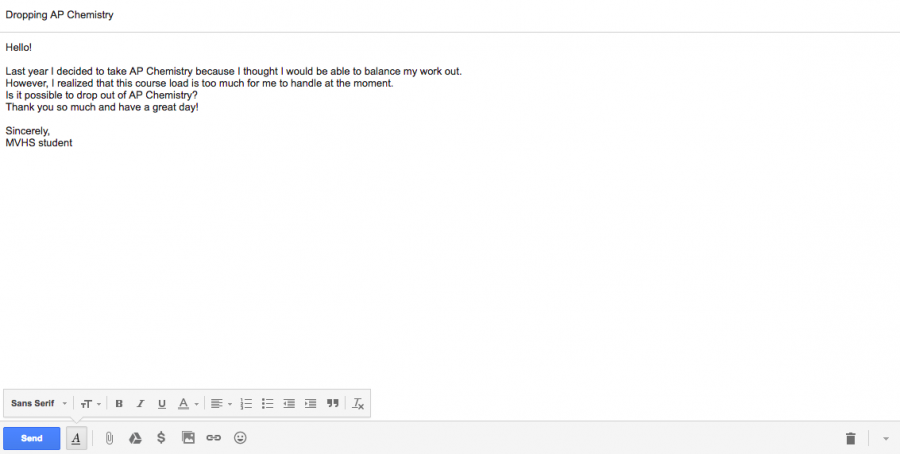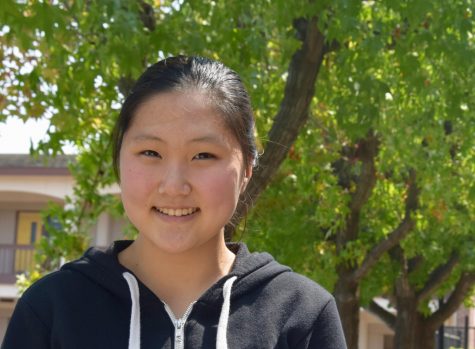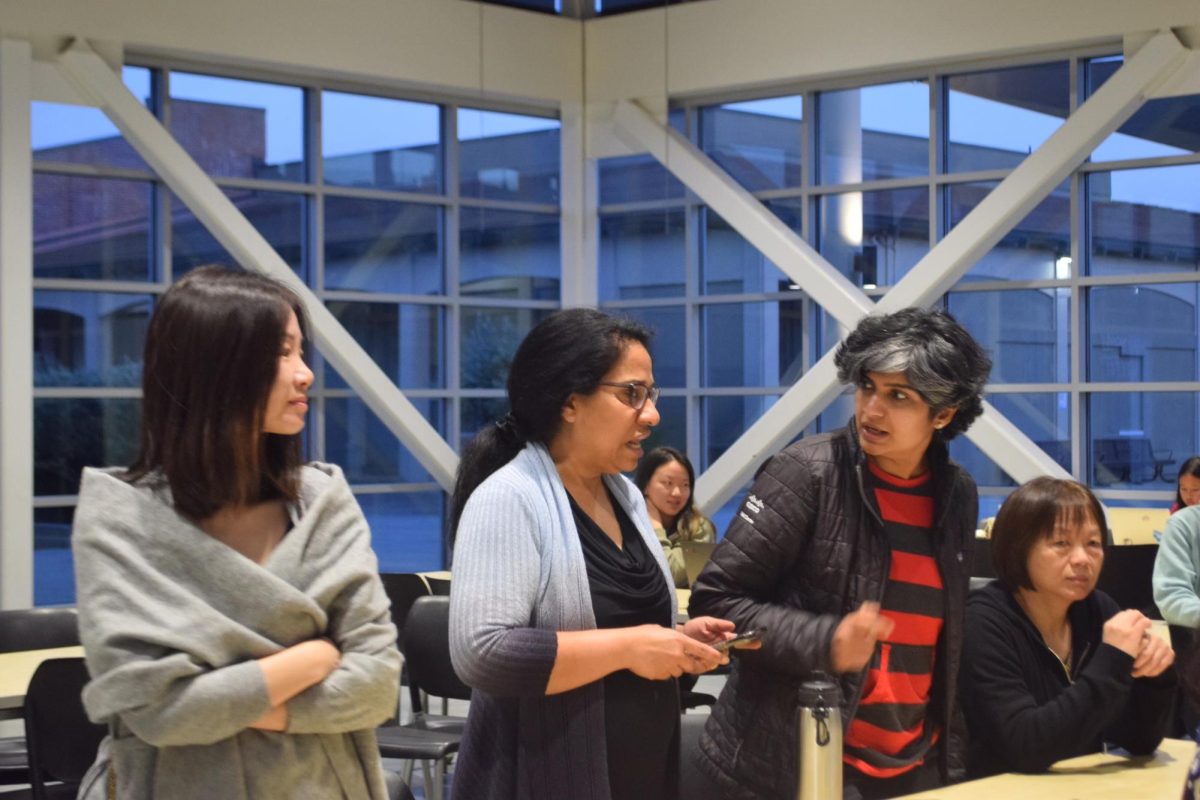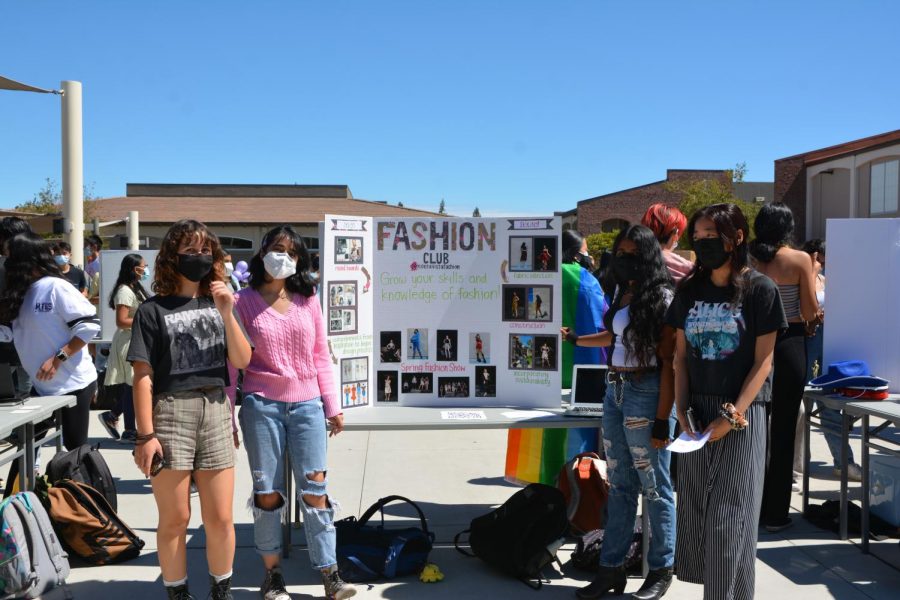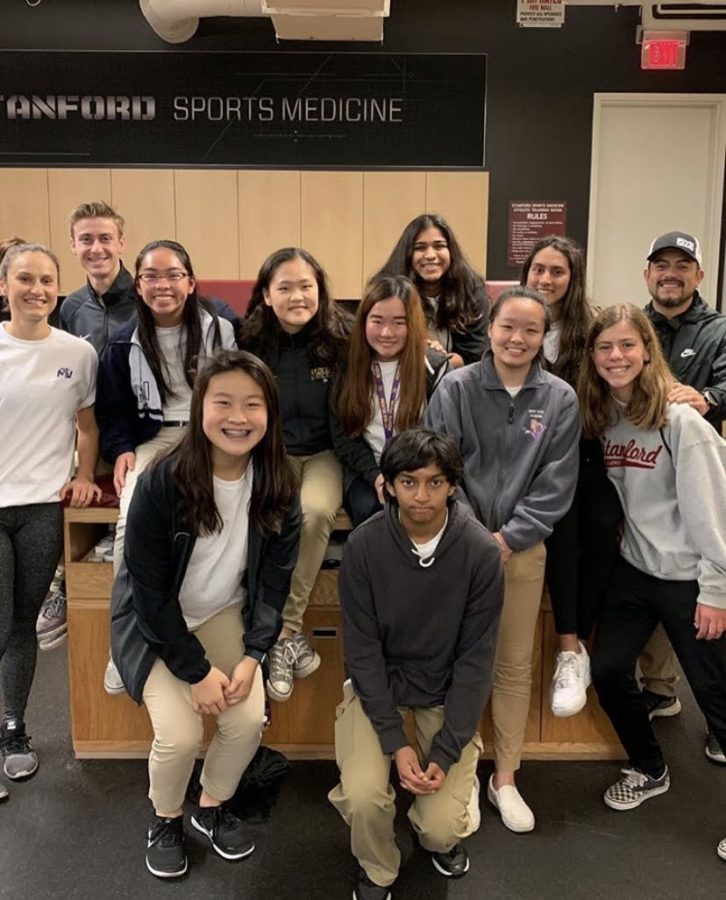“Would you ever consider dropping a class?”
In response to this under-asked question at MVHS, there is a clear disparity between the answer of freshmen and seniors’.
MVHS culture has continuously encouraged students to take higher-level classes, normalizing taking AP and honors classes earlier in high school. Senior Tiffany Leung acknowledges that challenging yourself to a certain extent is okay, but believes that if they overestimate their abilities, students can soon find themselves in the office processing class drop forms.
Sometimes, the level of the class isn’t the problem, but managing the workload of all of the classes is. Leung decided to drop Japanese 3 in junior year because she wanted to focus on other classes. Having decided to take two AP classes junior year, she decided that pursuing a new language was unnecessary. Leung went into Japanese 3 thinking it wouldn’t be a tough course, but soon realized that things weren’t as easy as she had expected.
“I dropped Japanese 3 last year because I began to feel frustrated with learning a new language because it’s my fourth language,” Leung said. “Everytime you move to a higher level it gets harder — especially [while] taking other AP classes as well.”
Yet, as seniors such as Leung reflect on their past class-drops as common and often beneficial, several freshmen continue to repeat the same mistakes of the classes before them. Some classes with a high drop rate every year such as AP Physics 1 is gaining the infamous status of one of the most difficult classes offered at MVHS, according to freshman Samantha Dunn.
She explains what she believes to be the reason behind freshmen’s continued confidence to take on difficult classes.
“The information available for the classes aren’t accurate enough for us to make better decisions [than the upperclassmen before us],” Dunn said.
Her friends agreed, sharing her same sense of confidence. “No,” they all said in regards to whether they would consider dropping classes in the future. Perseverance has been a resurfacing answer when addressing how they would cope with unprecedented, difficult classes.
“To get extra help is probably the best option,” freshman Neil Poulo said. “I picked [the classes I did] for a reason; if I thought I was able to do it, I still am able to do it. I would just get extra help, though. And, [I would] spend more time on it.”
However, senior Nolan Nguyen feels that perseverance is not enough to succeed in a class. When handing in his course selection form as a freshman, Nguyen thought he would be able to handle the workload. However, as sophomore year rolled around, he realized that it was just too much. Within a few months, he dropped Spanish 2 at MVHS and enrolled in an online class instead.
“I took Spanish 1 before I took [Spanish] 2, so I thought I was ready,” Nguyen said. “But when the year started and homework started to pile up, I decided to prioritize my time and take Spanish as an online class.”
However, freshmen believe that a reason why so many of them are misinformed about higher level courses is because the communication and aid provided by the upperclassmen is weak.
“A lot of times when I’m looking for classes during the course selection process, people would have completely unclear answers as teachers would contradict each other,” Dunn says. “So, just everything in general, if it was more organized or accurate, then we would be able to better select the classes that are well suited for us.”
Dunn believes the opinions and experiences of students who have taken the classes are valuable information — a perspective on a class which they would not otherwise be granted to know. To improve the communication border between upperclassmen and lowerclassmen, Dunn proposes a teacher-student presentation be prepared for each class.
“I feel like having seniors would be better than just the teacher, except just seniors by themselves is often inaccurate based on their own personal experiences,” Dunn said. “So, a combination of both [opinions will be available].”



